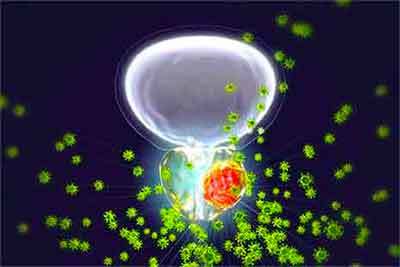madman
Super Moderator
Maintenance of androgen deprivation therapy or testosterone supplementation in the management of castration-resistant prostate cancer: that is the question (2022)
Irene Caramella ● Alberto Dalla Volta ● Marco Bergamini ● Deborah Cosentini ● Francesca Valcamonico ● Alfredo Berruti
Abstract
Purpose Whether or not the androgen receptor (AR) axis could still be targetable in castration-resistant prostate cancer (CRPC) patients with disease progression to next-generation hormonal agents (NGHAs) is a controversial issue.
Results Serum testosterone in CRPC patients has a positive prognostic role and increases testosterone levels after androgen deprivation therapy (ADT) withdrawal or testosterone supplementation, as part of a bipolar androgen therapy (BAT) strategy, has been shown to potentially restore sensitivity to previous lines of NGHAs.
Conclusion These data suggest that maintenance of ADT in CRPC patients receiving further lines of treatment, as recommended by current international guidelines, could be questionable. Conversely, testosterone supplementation aimed to re-sensitize CRPC to further hormonal manipulation is a strategy worth to be explored in future clinical trials.
In conclusion, evidence suggests that serum testosterone has a positive prognostic role in CRPC, so ADT maintenance in CRPC patients receiving concomitant AR independent therapies is questionable. Indeed, the observation of a successful rechallenge with hormonal agents after a transient restoration in testosterone levels claims the possibility to expand the efficacy of AR-targeted therapies in CRPC setting, with relevant implications for clinical practice since these agents are currently being used in the early management of a hormone-sensitive disease. In order to achieve rapid testosterone recovery in CRPC patients, ADT discontinuation alone is not sufficient and hormonal replacement is required.
*Testosterone can positively influence the patient's quality of life, which is a key clinical endpoint in late CRPC.
*Whether testosterone supplementation, in association with active antineoplastic therapies for patients with CRPC, should be administered continuously to achieve stable testosterone levels within normal limits or follow the BAT schedule is a matter for future research.
Irene Caramella ● Alberto Dalla Volta ● Marco Bergamini ● Deborah Cosentini ● Francesca Valcamonico ● Alfredo Berruti
Abstract
Purpose Whether or not the androgen receptor (AR) axis could still be targetable in castration-resistant prostate cancer (CRPC) patients with disease progression to next-generation hormonal agents (NGHAs) is a controversial issue.
Results Serum testosterone in CRPC patients has a positive prognostic role and increases testosterone levels after androgen deprivation therapy (ADT) withdrawal or testosterone supplementation, as part of a bipolar androgen therapy (BAT) strategy, has been shown to potentially restore sensitivity to previous lines of NGHAs.
Conclusion These data suggest that maintenance of ADT in CRPC patients receiving further lines of treatment, as recommended by current international guidelines, could be questionable. Conversely, testosterone supplementation aimed to re-sensitize CRPC to further hormonal manipulation is a strategy worth to be explored in future clinical trials.
In conclusion, evidence suggests that serum testosterone has a positive prognostic role in CRPC, so ADT maintenance in CRPC patients receiving concomitant AR independent therapies is questionable. Indeed, the observation of a successful rechallenge with hormonal agents after a transient restoration in testosterone levels claims the possibility to expand the efficacy of AR-targeted therapies in CRPC setting, with relevant implications for clinical practice since these agents are currently being used in the early management of a hormone-sensitive disease. In order to achieve rapid testosterone recovery in CRPC patients, ADT discontinuation alone is not sufficient and hormonal replacement is required.
*Testosterone can positively influence the patient's quality of life, which is a key clinical endpoint in late CRPC.
*Whether testosterone supplementation, in association with active antineoplastic therapies for patients with CRPC, should be administered continuously to achieve stable testosterone levels within normal limits or follow the BAT schedule is a matter for future research.















